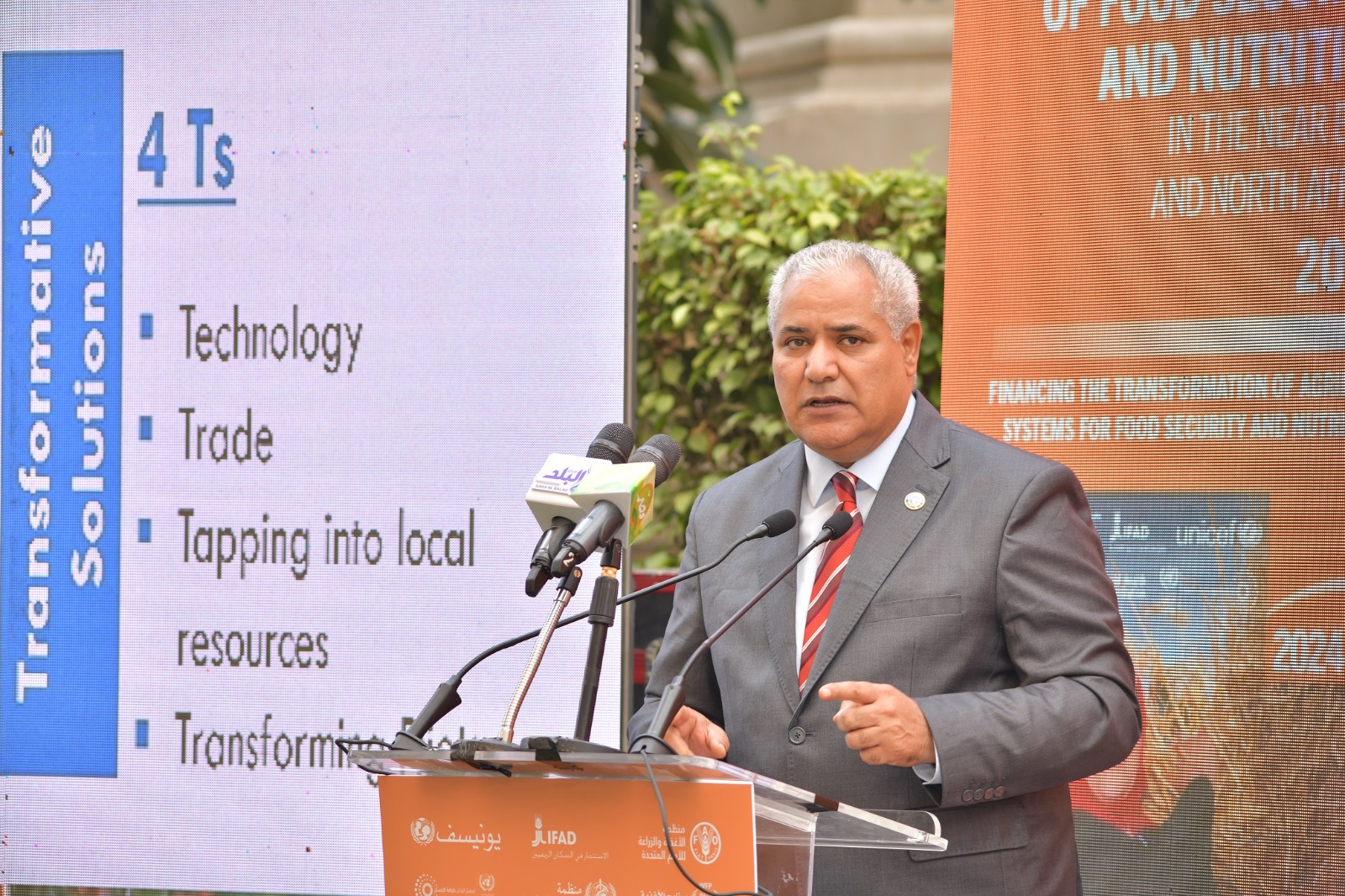Food & Climate
Arab peoples must change their food consumption patterns to avoid the risks of coming climate change and its effects on the cultivation of certain crops such as wheat. There are plants that have the ability to meet carbohydrate needs and are resistant to high temperatures, such as millet and sorghum. This is what the Assistant Director-General and Regional Representative for the Near East and North Africa Region of the Food and Agriculture Organization of the United Nations (FAO), Dr. Abdul Hakim El-Waer, urged.
This came at a conference held today, Wednesday, December 18, 2024, in the Egyptian capital (Cairo), to review the report “A Regional Overview of the State of Food Security and Nutrition in the Near East and North Africa 2024 – Financing the Transformation of Agricultural and Food Systems for Food Security and Nutrition”, in response to a question from the “Food & Climate” platform, about the difficulty of growing wheat in the hot climate that dominates the Arab countries, and the escalating increase in this temperature.
The Egyptian agricultural expert, Dr. Taher Fayed, had warned a few days ago against growing wheat in southern Egypt due to the harmful effect of heat on crop productivity.
However, El-Waer stressed the importance of modifying food consumption patterns in general, pointing to the need to raise awareness of the importance of eating healthy food, and staying away from foods that are harmful to health, such as consuming large amounts of sugar.
He said: “The Arab citizen may drink many cups of tea mixed with large amounts of sugar daily, which means consuming this harmful food, while you find that developed countries have reached the culture of not eating sugar. We must get used to this behavior.”

El-Waer continued He said that FAO, however, is conducting research to develop wheat seeds that are resistant to drought, salinity and water shortages, due to the problems related to these three elements.
4 elements
The Assistant Director-General and Regional Representative for the Near East and North Africa of the Food and Agriculture Organization of the United Nations (FAO), Dr. Abdul Hakim El-Waer, said that changing consumption patterns is necessary for Arab countries, not only to maintain public health and avoid the damage of climate change to some crops, but also to reduce food loss.
He explained that there are two types of food waste, the first occurs during the production process, and the second during consumption.
He added that achieving food security requires providing 4 elements, which are the availability of food through local production and import, ease of access to it, the ability to purchase it, and that it be healthy food.
The report said that Arab region continues to face serious
and nutrition challenges and is increasingly away from meeting Sustainable Development Goal (SDG) 2 of Zero Hunger.
The prevalence of undernourishment reached a new height: 14 percent in 2023, meaning that there were 66.1 million hungry people in the Arab region.
Moderate or severe food insecurity in the same year affected 39.4% of the Arab population (186.5 million individuals), a 1.1%-point increase from the previous year, and 15.4 % of the population (72.7 million people) faced severe food insecurity in 2023.
Private sector investment
El-Waer believes that there is a need to encourage private sector investment in agriculture and food production to provide the necessary financing for this sector.
El-Waer said that governments should create incentives and guarantees for the private sector to participate in financing food production, such as launching insurance funds against business risks.
The report undertakes mapping the current financing of food security and nutrition. Based on its findings, the broader agriculture sector (agriculture, food, forestry, and fishing sectors) in Arab countries
received USD 28.4 billion in financing in 2021, the majority of which was bank credit (USD 12.8 billion) and government expenditure (USD 10.4 billion), with a smaller part of development financing for food consumption (USD 4.9 billion) and a tiny share of foreign direct investment (0.3 billion USD).
This estimate of current financing does not include consumer spending and financial flows through food trade and retail, which benefit local agrifood systems. It also excludes government spending on social protection and health services, as not all of these expenditures relate to food security and nutrition.

Arab agrifood systems will need to better target existing, as well as additional, financial resources for agrifood systems transformation that would improve food security and nutrition while safeguarding livelihoods and protecting the planet.

